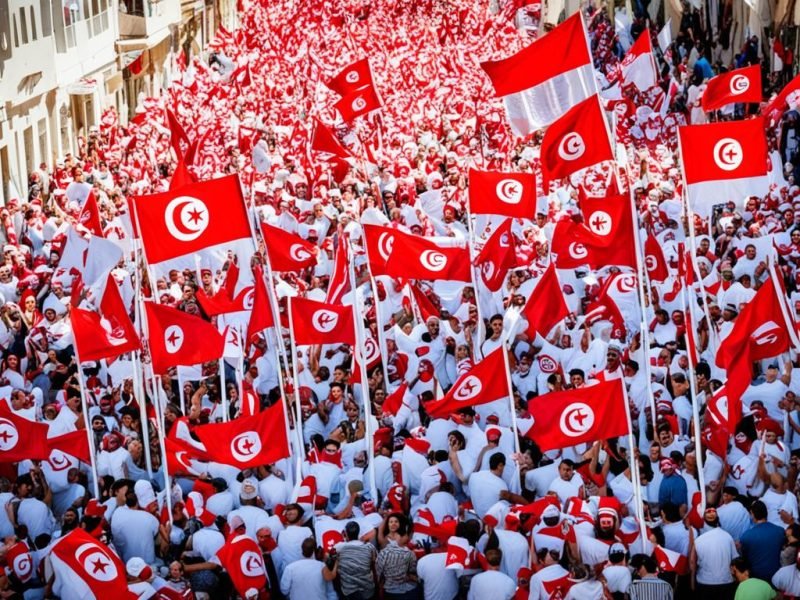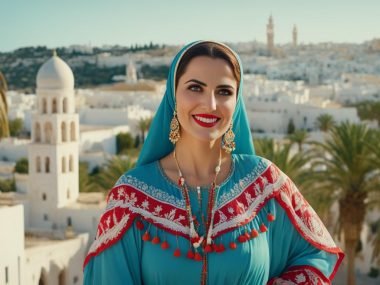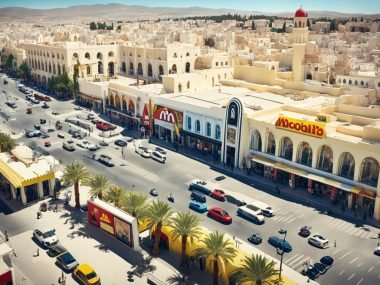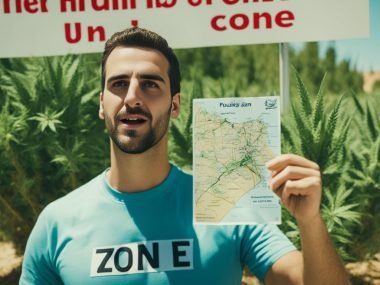In 2011, the world saw Tunisia start a revolution. We hoped it meant democracy for them, a beacon of hope worldwide. But ten years later, things seem less sure. On July 25, 2021, President Kais Saied made big changes. He fired the prime minister and stopped parliament from meeting. This puts Tunisia’s democracy in doubt. I want to find out what’s really happening.
Tunisia was once praised for moving towards democracy. But now, Freedom House and the Economist Intelligence Unit think differently. The country fell in the Press Freedom Index, from 73rd to 121st. This shows how much freedom is at risk. Is Tunisia still a democracy? Or are undemocratic forces taking over?
Key Takeaways
- Tunisia’s democracy is under evaluation after significant actions by President Kais Saied have raised alarms.
- The Tunisian government type experienced a severe setback following the dismissal of officials and the suspension of parliament.
- Indicators of backsliding, such as declines in press freedom, prompt a closer inspection of democracy in Tunisia.
- International benchmarks have shifted, reflecting increased concern over Tunisia’s political system’s adherence to democratic norms.
- Understanding the current Tunisian political system is crucial for grasping the full scope of the challenges facing its democracy.
Understanding Tunisia’s Political History and The Arab Spring
Tunisia’s political story is linked with the Arab Spring. This event changed Tunisia’s political scene. It helps to understand Tunisian democracy, the Arab Spring’s effect, and the move to democracy.
The Roots of Tunisian Democracy
After the Arab Spring, Tunisia’s political system changed. A new constitution was made. This constitution is known worldwide for valuing human rights and equality.
Impact of the Arab Spring on Tunisian Politics
The Arab Spring started in Tunisia. It changed the country’s politics. This led to a real effort to create a democracy.
This key historical moment was about more than just fighting a regime. It was about the Tunisian people taking back control and leading to new political parties.
Transition to Democratic Governance
Since its revolution, Tunisia has had many open elections. These are key steps in becoming a democracy. The various political parties have been key in this shift. They help manage changes and keep the system steady.
This is how Tunisia’s political parties shape its parliament:
| Year | Leading Parties | Votes Received | Seats Won |
|---|---|---|---|
| 2014 | Nidaa Tounes | 1.3 million | 85 |
| 2019 | Ennahdha | 0.5 million | 52 |
Tunisia’s political growth has had its ups and downs. But, the progress towards a democracy is clear and important.
The Arab Spring is a key moment for Tunisia. It shows its commitment to democratic values. This is seen in its new constitution and the role of political parties.
Tunisia’s Democracy Under Scrutiny: The Actions of President Kais Saied
President Kais Saied was elected in 2019. Many hailed his promise for integrity and reforms. But Saied’s actions have pushed Tunisia away from its democratic path.
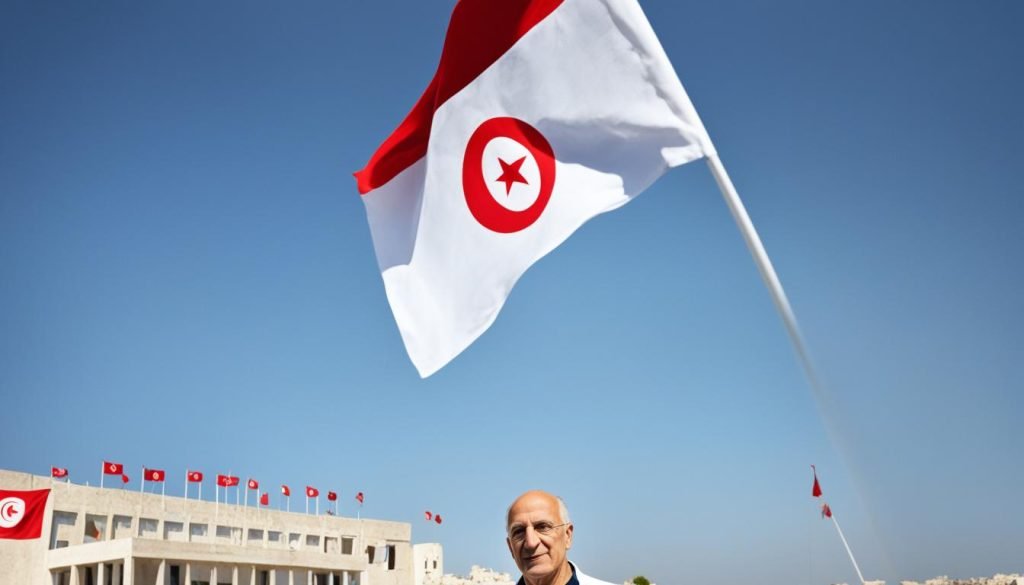
The Tunisian election process has faced big changes under Saied. He suspended parliament on July 25, 2021. He claimed it was an emergency move, worrying many about Tunisia’s democracy.
After closing parliament, Saied began to govern alone. He ignored the usual laws and constitution. This step back has alarmed those who value Tunisian democratic reforms made after the 2011 revolution.
By bypassing democracy, Saied is leading Tunisia towards authoritarian rule. This challenges Tunisia’s democratic foundation.
This shift toward control has stopped democratic progress. It has also led to political problems. The world and Tunisians are now worried about democracy’s future there.
I’m looking into what these changes mean. It’s important to see how they might change Tunisian democratic reforms. What happens next in Tunisia is not clear. The actions of the world and people within Tunisia will be key.
The Contours of Tunisia’s Political System
Tunisia’s government system gives us a deep look at its politics. It is in North Africa. It blends semi-presidential features with many parties. Its constitution plays a big role.
Executive Branch Dynamics
The President of Tunisia has two big roles. He is the head of state and government. This setup usually spreads power. But lately, the President has gotten more control. He works with the Prime Minister. They pick local leaders, which means more power at the center.
Legislative Processes in Tunisia
Tunisia has one main group making laws, called the Assembly of the Representatives of the People. This group is very important. It shapes the constitution and other big laws. Political parties here are strong. They suggest, talk over, and approve the nation’s laws. But, the executive branch’s growing power is a challenge. This started to change more after 2021.
Judiciary and Legal Framework
The courts in Tunisia are vital. They make sure the country follows its constitution and laws. The system is based on French law. It should not be influenced by other parts of the government. This keeps everything balanced.
But, recent events have put this balance at risk. The executive’s push into other areas is worrying. It could change how Tunisia is governed.
Does Tunisia Have A Democracy?: Evaluating Press Freedom and Human Rights
In Tunisia, Tunisian presidential elections and Tunisian parliamentary elections show how strong their democracy is. But now, human rights in Tunisia and Tunisian press freedom are in trouble. What was once open and fair now struggles with new laws and government actions that hurt democracy.
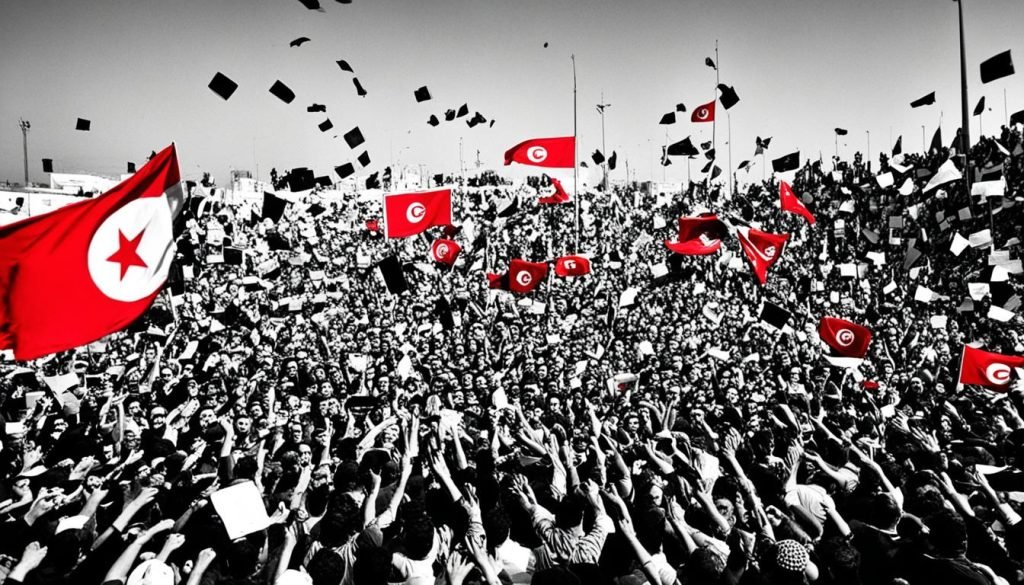
Press freedom in Tunisia has gone downhill recently. This change may come from political moves after elections. These actions shrink the space for people to talk and criticize. Arrests of journalists and limiting free speech hurt Tunisian democracy. They also worry groups that watch over human rights around the world.
Freedom of the press is not merely a marker of democracy, it is its very lifeline, essential for the sustenance of informed citizenry and accountable governance.
- Impact of diminished press freedom on electoral integrity and public trust.
- Correlation between human rights abuses and shifts in governance models post elections.
- Analysis of the legal frameworks governing the rights of expression and assembly in the context of recent political developments.
| Year | Press Freedom Ranking | Notes on Human Rights Issues |
|---|---|---|
| 2017 | 97 | Relatively Open Environment |
| 2018 | 88 | Improvement in Media Conditions |
| 2019 | 72 | Heightened Media Freedom post Elections |
| 2021 | 126 | Significant Decline due to Political Instability |
| 2022 | 134 | Deterioration Continues amid Arrests and Censorship |
International Responses and U.S. Policy Toward Tunisia
The U.S. has a unique approach towards Tunisia, especially now as Tunisia’s democracy struggles. The way the U.S. and groups like the International Monetary Fund (IMF) interact with Tunisia is very important. It shows how countries work together, but carefully.
Global Perspectives on Tunisian Democracy
The world’s reaction to Tunisia’s political changes is complex. People and organizations around the world are worried. They see Tunisia moving away from democracy. This worries them because Tunisia was doing well after the Arab Spring.
The Influence of International Relationships
Tunisia’s global relationships have a big effect on its policies and how it’s run. Being friends with big economies, like the U.S. and the European Union, has helped Tunisia a lot. These friendships bring Tunisia support and financial help.
U.S. Foreign Policy and Aid
The U.S. tries to support democracy in Tunisia but also looks after its own interests. The U.S. gives Tunisia military assistance, money, and support for important IMF loans. This help aims to keep Tunisia’s economy stable during tough times. The U.S. wants to promote peace and fight extremism in North Africa. This is part of their bigger plan, even as Tunisia faces political challenges.
Helping Tunisia stay democratic is a big task for the international community. The world, including Tunisia and the IMF, is working to adjust their policies. They want to help Tunisia succeed. The support from around the world is key to Tunisia’s future.
Conclusion
Looking at the current scene, it’s hard to tell if Tunisia still embraces real democracy. It was once a beacon of hope for democracy in the Arab world. But recent actions by President Kais Saied suggest a big change. These moves away from democracy have drawn global criticism. People worry about democracy’s future in Tunisia.
The political scene in Tunisia used to be progressive after 2011. Now, it’s at a critical moment. Freedom of the press and political diversity are slipping away. To get back on track, Tunisia needs big reforms. These should bring back fairness and clear rules in government.
What happens next for democracy in Tunisia depends on local and global efforts. It’s important for everyone to support freedom and democratic principles. I hope Tunisia can overcome these tough times. I want it to be a model for democracy again, admired worldwide.

